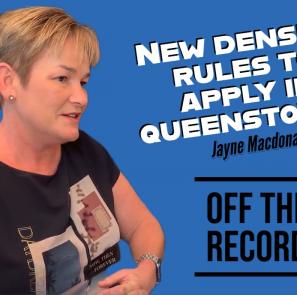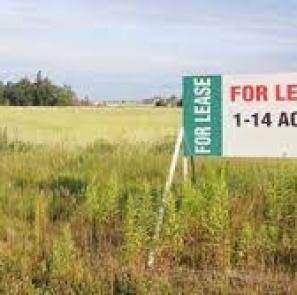Stay up to date with our latest News, Views & Resources by subscribing to our newsletter. We promise to provide you with quality content & the latest industry news.
When Grandma Comes To Live With Us
When Grandma comes to live with us
As parents age, their children often find they need to take an increasing role in looking after them. Unpalatable as it seems, it’s important to think about the legal difficulties that can arise where one member of the family has assumed responsibility.
If questions are asked some time later, it may not be enough to say “but that is what mum/dad wanted”. We also explain the restrictions on when an attorney (the person who holds the Enduring Power of Attorney) can benefit from the decisions they make. We touch on the issues where a parent later needs to go into care.
Often elderly people do not want to live alone. Buying a unit in a retirement village, or some other form of sheltered accommodation, may be a good option. Others may find buying a unit is not financially possible or desirable. Some prefer to stay with one of the family. In that case, an increasing burden may be thrown on the family member who is providing care. These arrangements should be recorded carefully and it’s important to get legal advice.
Often the son or daughter who is providing care may also hold an Enduring Power of Attorney (EPA). In 2016, the Court of Appeal heard the Vernon case . This concerned an elderly man who went to live with his son and daughter-in-law. In less than two years, almost all of his money had been paid out for the benefit of the son and his family. The son said this was done with his father’s approval, but the court wasn’t convinced. The court believed he had misused his position as carer – and as attorney under the EPA – for his own benefit. The son was required to pay back the money he had received and to meet some of the court costs.
In some cases, the parent may lend money to their son or daughter to help fund adding an extra room where the parent will be able to live. In other cases, a parent may pay for a relocatable unit or granny flat. Unless there is some other arrangement, the extra room or building will legally be the property of the son or daughter and their spouse/partner as owners of the land. If this is not intended, then a written agreement should be signed. There are a number of things to think about. What is to happen when the arrangement comes to an end? Is the money to be treated as a gift or a loan? When should any loan be repaid and is interest to be paid?
Parents may also need to think about whether it’s fair to help one son or daughter by paying for an extension to their home without giving something similar to others in the family.
What is to happen if, after a few months, the arrangement with Grandma is not working out? Can mum get her money back and move somewhere else? Will the son or daughter be able to pay her back if the money has all been spent on extensions to their home in order to accommodate mum?
More importantly, the son or daughter needs to be able to show that the arrangement is fair and that the parent is not being taken advantage of. To avoid these risks, it is advisable for the parent to have independent legal advice and for the arrangements to be clearly documented.
Long-term residential care
If a parent later needs to go into care, there may be a further difficulty. Government subsidies for long-term care are subject to asset testing. Money previously given away can be clawed back and treated as if mum or dad still had the money. There are exemptions, and you can hold on to some funds, but those rules change from time to time.
If mum has given her son money to pay for a granny flat or extension to his house, so she can live with him, this may be treated as ‘deprivation of assets’ and a residential care subsidy refused. If the money was a loan, not a gift, then the son would be expected to pay it back so that the money can be used to meet the cost of care.
EPA attorneys who benefit from their own decisions
Family members who act as an attorney under an EPA also need to understand that they are not entitled to benefit personally. Section 107 of the Protection of Personal and Property Rights Act 1988 says that an attorney can only benefit personally if:
- The EPA specifically allows this
- The court authorises the attorney to receive a benefit
- The attorney is recovering out-of-pocket expenses
- The attorney is the spouse or partner and is dealing with their jointly owned property
- The attorney makes a loan or investment which a trustee would be able to make when looking after trust money, or
- The attorney is a professional, such as a lawyer or accountant, and charges the usual professional fees for such professional work.
The wording of the EPA can override any of these last four exceptions.
If you have one of your parents coming to live with you, it would be wise to check what their EPA does and doesn’t allow. As well it would be prudent to ensure that any financial arrangements are well thought through.

Welcome to the Autumn 2026 edition of Trust eSpeaking.
We hope you find these articles thought-provoking, interesting and useful.
- Taxing the business of charities
- Trustees taking on liabilities of the trust
- Death, property and pre-nups

- Rent reviews in commercial leases: Methods of review
- Vendor supplied reports/disclosures: Can you rely on them?
- Property briefs: Proposed reform to the overseas Investment Act 2005 - Granny flat legislation just passed - No further restrictions on sunset clauses in agreements - Changes to earthquake-prone buildings assessment
The New Zealand property market can be challenging, especially for those buying in Central Otago, and we are seeing a steady rise in keen buyers exploring creative paths to climb...
Read More
On 4 July 2024, the Coalition Government introduced its plan to fix our housing crisis consisting of five interlocking actions.
Read More
Relationships can be complicated waters to navigate at the best of times, but it can become even trickier when thought needs to be given to relationship property matters.
Read More
Lending money to your children to buy their first home can be a generous and life-changing move, but it’s essential to consider the legal implications before proceeding.
Read More
The Trust Act 2019 outlines the obligations of trustees, and when taking on a trusteeship an individual or company must be aware of the risks involved.
Read More





https://www.youtube.com/watch?v=Ml7nmEmtvSY
Read More
Trusts Act 2019 also affects executors and administrators of wills
Read More
Creditor compromise regime: Another option in insolvency Guest editorial: The economy - tougher times ahead? Love, heartbreak and...death? Make a new will and EPA's when you separate New Incorporated...
Read More
https://www.youtube.com/watch?v=lZ6pC9agrrs
Read More

Senior Associate Scott Donaldson and Senior Solicitor Alice Milne have released episode 3 of their podcast, Off the Record.
Read More
Senior Associate Scott Donaldson and Senior Solicitor Alice Milne have released episode two of their podcast, Off the Record.
Read More
Duncan Anderson, Associate, Mactodd Lawyers, Queenstown
Read More
Senior Associate Scott Donaldson and Senior Solicitor Alice Milne have started a new video podcast where they address issues in law affecting Queenstown businesses.
Read More
Mental health in the workplace Co-ownership arrangements Checking your home is accurately insured Helping your family before you pass away Notifications of privacy breaches increase significantly Post script
Read More


Mann v Paterson Constructions Pty Ltd—Builders' Quantum Meruits Revisited' (2021) 37 Construction Law Journal 207 discusses recent changes to the law in Australia regarding restitutionary claims able to be made...
Read More
Buying off the plans New edition of To Trust or Not to Trust Climate Action Toolbox Post-Covid working world An independent trustee Postscript
Read More

Investment in Farming - A focus on syndicated farm investments The finite supply of water - Water easements Over the Fence - Crown Pastoral Land Reform Bill (submissions open),...
Read More


The government’s Budget, presented by the Minister of Finance the Hon Grant Robertson on 14 May has addressed, in the words of the Minister, “a 1-in-100 year health and economic...
Read More
These helpful checklists will guide you thought some of the most important areas you and your lawyer need to address when purchasing or selling a residential property and also when moving.
Read More
Also includes comprehensive checklists to you don't miss out any important step as well as details on how to protect your assets and when you also need to consider a...
Read More
Not all investments in NZ require consent from the Overseas Investment Office (“OIO”) but like many countries NZ has controls on overseas investment. Certain land is subject to OIO consent.
Read More
This practical guide designed to steer you through the essentials of Family Trusts including: Is a family trust for you? Protection given by a Family Trust. Planning for your life. Duties of trustees and how to run a trust. Costs.
Read More
Our local knowledge, experience and expertise will provide you with the support and advice you need for a successful property purchase, regardless of the size or complexity of the transaction.
Read More
We have produced a practical guide on buying a home or an investment property in New Zealand in Mandarin.
Read More
You’re catapulted into thinking about organising a funeral, whether it will be a cremation or burial and how to organise the day, and then you also need to think about...
Read More

